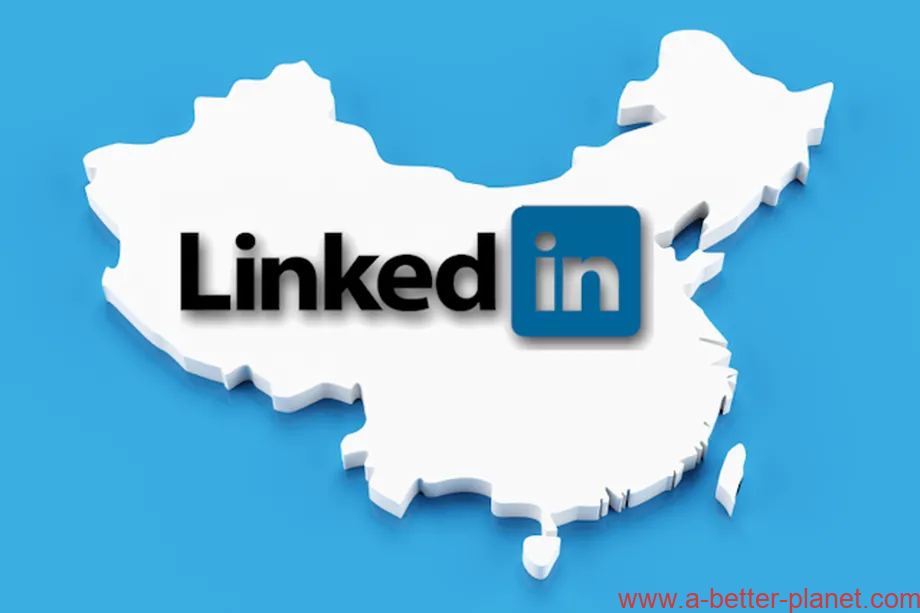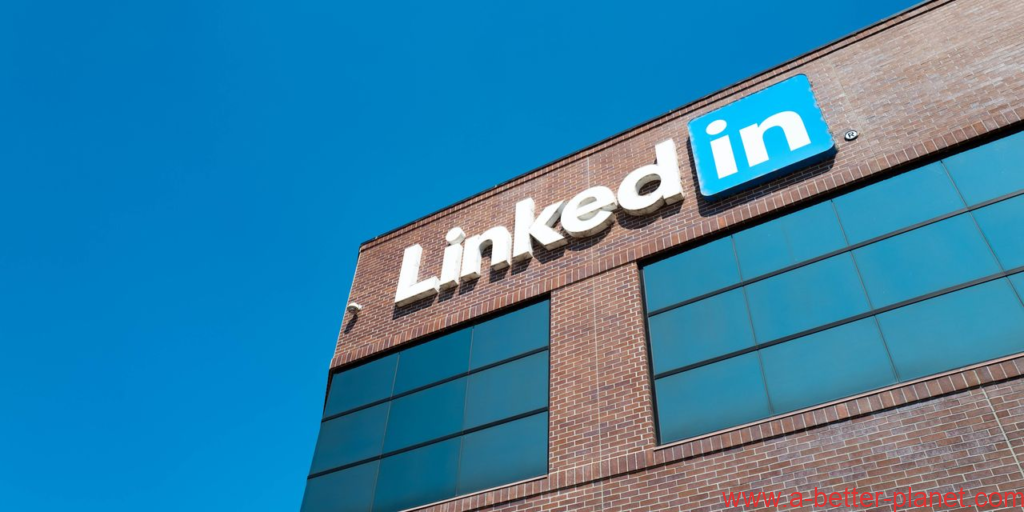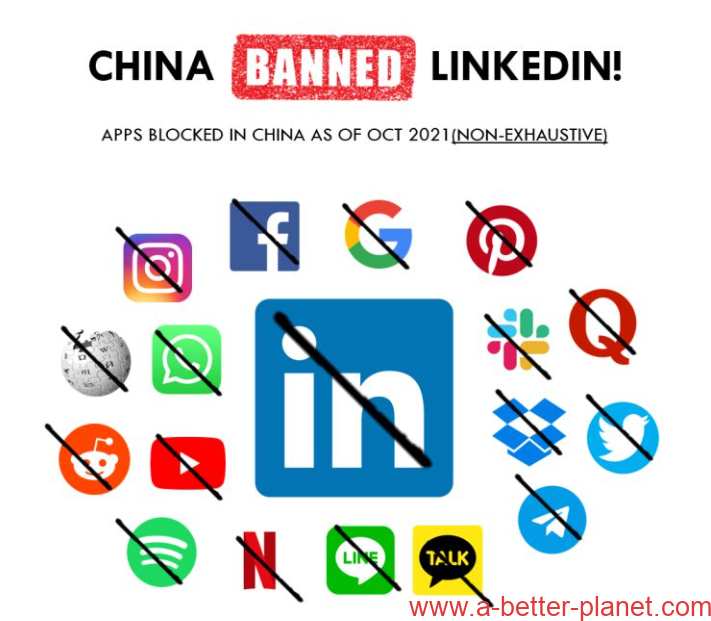The following news comes from the Internet and does not represent the views of the website owner.
Reuters, Bloomberg and many other Western media reported yesterday that the US technology company Microsoft will close the Chinese business of its workplace social platform LinkedIn (LinkedIn).

However, LinkedIn’s official Weibo quickly responded last night, saying that this was false news and that the company was making “strategic adjustments”.
Western media is based on a blog post published on the 14th by LinkedIn’s official English blog. The article euphemistically used “going to sunset” (going to sunset) to foretell that the LinkedIn China platform would terminate its service, and replaced it with the InJobs platform, which only provides job search information and has no social attributes.
In short, LinkedIn will still provide job matching services in China, but LinkedIn China will end as a social platform that links international workplaces, expands contacts, and shares content.
Whether it’s “transition” or “sunset”, what is certain is that the only American social media platform that has successfully entered the Chinese market for seven years in China will enter history.
LinkedIn’s two sayings
LinkedIn’s comparative advantage is precisely its social nature. If it only provides job search information, it is still unknown whether it can compete with many local job search platforms in China. According to information on the LinkedIn platform, LinkedIn China currently employs 1,241 employees, and the company has not yet released any personnel-related information.
LinkedIn’s anti-rumor message on Weibo was accompanied by a letter to members. The letter stated that finding a job is the main reason why Chinese users come to the LinkedIn platform. In order to better serve Chinese users, the company decided to adjust its current strategy to focus on providing the value of connecting career opportunities instead of covering user original content. And interactive features.
LinkedIn’s official English blog explained from another perspective, saying that LinkedIn China has not achieved the same success in social attributes as in helping people find jobs. “We are also facing a more challenging operating environment and a higher degree of cooperation in China. Regulatory requirements.”
LinkedIn did not specify the specific challenges and requirements it faces, nor did it announce the date of the suspension of LinkedIn China.

“Trade-offs” for foreign companies operating in China
The ending of LinkedIn China is not surprising. Some of the company’s previous actions have shown that the platform is facing increasingly strict supervision and rectification.
LinkedIn China blocked the pages of some foreign journalists last month on the grounds that the pages contained prohibited content. A national security reporter from the US news site Axios and Bethany Allen-Ebrahimian, a “China Connect”, received an email from LinkedIn on September 27, stating that her page involves prohibited content and cannot be viewed in China. Before joining Axios, Bei Shuying was the chief reporter of the China Cables project of the International League of Investigative Journalists. “Chinese Telegram” is a report made through leaked documents from the Chinese government obtained by overseas Uyghurs, and the content involves the planning and execution of Xinjiang re-education camps. The Chinese government claims that these “re-education camps” described by Western media are vocational skills education and training centers.
In addition to Bei Shuying, Melissa Chan, the former American reporter of Qatar Al Jazeera TV station in China, was also told the next day that her page would not be displayed in China because the “Publications” section contained “prohibited content.”
In response to the inquiry, LinkedIn did not indicate which content is prohibited, only saying that the platform complies with China’s regulations on the Chinese version of the platform.
Suzanne Nossel, the chief executive of PEN America, criticized LinkedIn’s practice of censorship: Florida Republican Senator Rick Scott also wrote to Microsoft CEO Satya Nadella (Satya Nadella) ), asked the other party to explain LinkedIn’s behavior and severely criticized it as “surrendering” to the CCP.
The New York Times quoted a source in March as reporting that Chinese officials reprimanded LinkedIn for lax content censorship, required LinkedIn to conduct a self-assessment and submit a report to the Cyberspace Administration of China. LinkedIn China suspended the registration of new members for 30 days at the time, saying that the move was to ensure that the site complies with local regulations.
The Wall Street Journal reported in June that the information of at least 10 individual users was blocked or their posts were deleted on the Chinese version of LinkedIn. According to the paper, China’s Internet regulatory agency interviewed LinkedIn managers in March, ordered them to strengthen content supervision, and gave LinkedIn a 30-day period to clean up related content. LinkedIn promised to strengthen its supervision of its websites in the future.
In fact, when LinkedIn entered China in 2014, then CEO Jeff Weiner said that although the company supports freedom of speech, providing localized services in China means complying with local censorship requirements. LinkedIn has reiterated this view many times afterwards.
The company’s statement at the time also clarified its position, stating that LinkedIn “strongly supports freedom of speech and fundamentally opposes government censorship”, but it also believes that if LinkedIn is absent in China, there will be less professionals in China who can connect with others. As a global platform, the company has been “weighed our options” and promised that the Chinese government’s restrictions on the content of the platform will only be “within the required range” and consistent with the company’s core values.
This is seen as a compromise in exchange for China’s huge market. Reuters believes that LinkedIn’s successful entry into China has become a learning example for many social media companies that want to enter the Chinese market, but no company has followed suit. Agence France-Presse said that the reason why Twitter and Facebook have been banned in China is because they are unwilling to compromise.

Chinese official statement
A reporter from Agence France-Presse asked at the press conference of the Chinese Ministry of Foreign Affairs today whether it was China that asked LinkedIn to withdraw from the Chinese market?
Spokesperson Zhao Lijian responded that he can go to check the response that LinkedIn has made. He also emphasized that China firmly implements the basic national policy of opening to the outside world and is actively committed to creating a good business environment for foreign investors. “China’s development will continue to release its huge market potential and vitality, and it will also create more and greater opportunities for companies in various countries, including the United States.”
On May 21 this year, the Cyberspace Administration of China issued the “Notice on the illegal collection and use of personal information by 105 apps including Douyin” on its official website. LinkedIn China is ranked, and the official said that the main problem with LinkedIn is “violating the principle of necessity and collecting personal information that has nothing to do with the services it provides.”
The “Notice” stated that in response to problems found in testing, relevant App operators should complete rectification within 15 working days from the date of this announcement. Those who fail to complete the rectification within the time limit will be dealt with in accordance with the law.
The “Notice” is based on the “Network Security Law of the People’s Republic of China”, “Approval Methods for the Collection and Use of Personal Information in Violations of App Laws”, “Regulations on the Scope of Necessary Personal Information for Common Types of Mobile Internet Applications” and other laws and related regulations.
The full text of the “Cyber Security Law” can be read on the official website of the Cyberspace Administration of China. Article 41 of Chapter 4 clearly states: “Network operators shall follow the principles of lawfulness, fairness, and necessity when collecting and using personal information… The collection of personal information irrelevant to the services provided shall not violate the provisions of laws, administrative regulations and the agreement between the parties.”
But what kind of personal information is “necessary” and what is “not related to the service”?
Not only LinkedIn, all social media platforms in China are facing stricter supervision, involving different types of users
It is not uncommon for content to be banned and accounts blocked on Chinese social platforms. The relevant laws and regulations are very transparent and can be read on government websites, but the key interpretation power lies with the official.
LinkedIn has been operating in China for seven years, it must understand and do its best to comply with this set of rules, and has been mediating between government regulation and company values, but the continued tightening environment may have forced it to abandon its social media business in China.
Evan Medeiros, who advises multinational companies on operations in China, told the Wall Street Journal that if LinkedIn China continues to conduct reviews, its reputation and global business model will also be at risk.
In addition to goodwill, if it continues to cooperate with China’s regulatory requirements, the pressure on American domestic politics and public opinion will continue to increase. Its “weighing options.”
Netizens’ views and the future of China’s social media space

LinkedIn has 53 million users in China, accounting for about 7% of the total number of global users. This number and the potential market in China are certainly considerable for the company, but in the huge Chinese social media space, LinkedIn users still belong to minority.
A netizen user on the Weibo platform sighed: “This is my window to the world… There are still many good articles…” Another netizen said: “LinkedIn is not only used to find jobs, but a large part of their business. It’s sales and marketing. Many Chinese companies use LinkedIn to find overseas customers and open up markets, which is an important channel for going global.”
But some netizens said: “Let’s close it, it’s all fake foreign devils and foreign liars.”
Many users of LinkedIn China also raised substantial concerns on the platform: “Excuse me, if I changed to a new app, can I still be able to contact my friends that I can contact with private messages on LinkedIn?” “The account will be closed after shutdown. Can’t use it? All contacts are useless? Or migrate to a new platform? Or give a solution to download contacts before shutting down?”
In addition to LinkedIn, Microsoft has a product operating in China, and that is Bing. As the only major U.S. search engine still operating in China, Bing has also censored search results, and its development prospects and thoughts in China have also attracted attention.
For the questions of existing users, LinkedIn China believes that it will provide a plan to respond. However, many people’s inner doubts about the prospects of US companies in the Chinese online market and the issue of China’s social media space are definitely not just about how LinkedIn users can retrieve their contacts.
1 thought on “What Happened To LinkedIn In China Today ?”